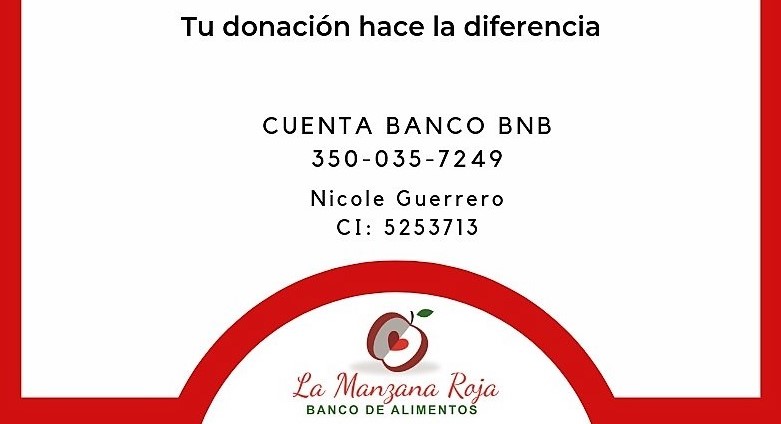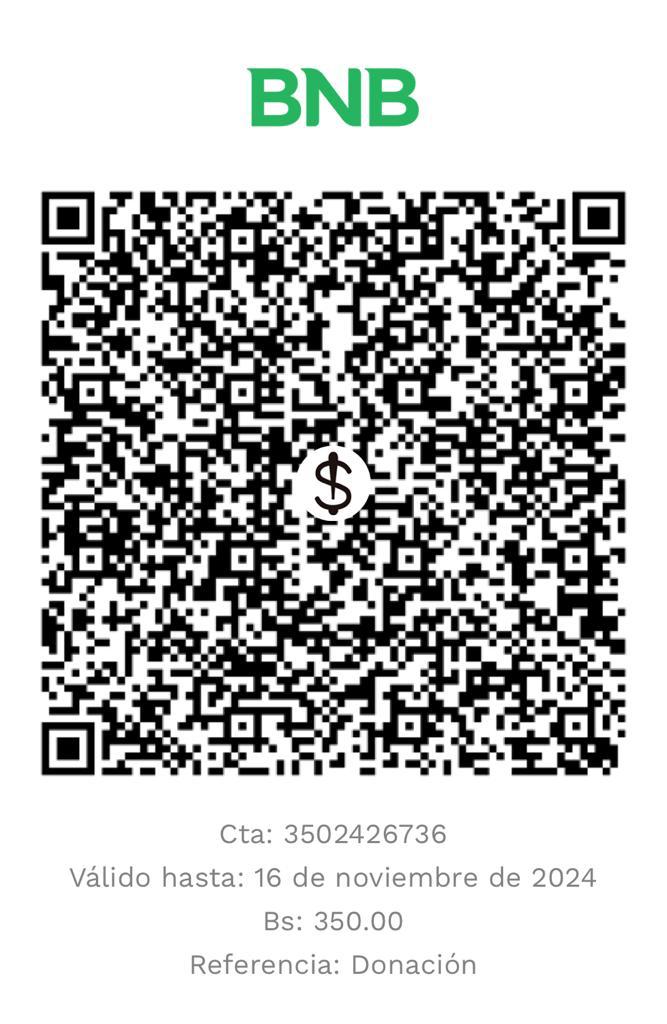Frequent questions
-
What is the Food Bank?The Food Bank of Bolivia, a non-profit organization that is dedicated to recovering surplus food that is generated at different stages of the food chain for subsequent redistribution to organizations that serve vulnerable populations, avoiding any waste or misuse; In this way, improving the Food and Nutritional Security and Quality of Life of vulnerable people in its area of influence and in Bolivia.
-
How does a Food Bank work?
- 1- The Food Bank of Bolivia recovers food from food companies, merchants and farmers. This food has lost commercial utility because it no longer meets quality standards but is in perfect condition for consumption. This food usually has some aesthetic flaw, packaging flaw, or simply has a close expiration date (5-15 days shelf life).
- 2- Subsequently, the Food Bank carries out a selection and classification process of the food to guarantee its safety.
- 3- The food is redistributed immediately to the beneficiary population.
- 4- Support and monitoring is carried out on the beneficiary population in order to guarantee optimal consumption of the food delivered.
- 5- Monthly bulletins and annual reports are disseminated to companies, institutions, markets, farmers and volunteers, in which details are shared about the recipients of the food, the population served and the destination of the financial funds received.
-
How can I be a beneficiary?The Food Bank provides its support through alliances with social organizations or communities, not directly to individuals; However, we share the link of beneficiaries and there you can see the list of social organizations allied to the Bank, so you can make your request at: Beneficiaries
-
What is the main requirement for a social organization to receive food?The beneficiary population must be evaluated by the Beneficiary Department of the Food Bank of Bolivia, who carry out a socioeconomic study to determine the quantity, type of population being served and their food needs to ensure optimal care and monitoring.
-
Who donates the food?Companies, merchants, individuals and producers donate food, mainly products that have lost their commercial usefulness because they no longer meet the corresponding quality standards, but are in perfect condition for consumption. This type of food usually has some aesthetic flaw, defects in the packaging or simply has a close expiration date, generally between 5 and 15 days of shelf life.
-
What type of food do they receive?At the foundation, we receive both perishable and non-perishable foods, since we have a warehouse properly equipped for their selection, classification and storage. It is important to note that we do not accept food that has passed its expiration date, thus guaranteeing the safety of the products we distribute. This policy allows us to offer fresh and in good condition food to those who need it most, contributing to providing quality food aid.
-
What foods are most needed?When serving vulnerable populations in remote areas, we preferably require non-perishable foods to be able to take them to these communities. Among the essential products we look for are milk, oil, sugar, noodles and rice. In addition, perishable products such as meats, fruits and vegetables are highly requested due to their valuable nutritional contribution. This combination allows us to comprehensively address the food needs of the communities we serve.
-
How is food delivered?Food is delivered both in our warehouse and through delivery services. To guarantee the effective distribution of food to our beneficiaries, it is necessary to coordinate in advance the quantity, the day and the time in which they will come to collect them or they will be delivered. This careful planning allows us to ensure that each beneficiary receives the appropriate amount of food in an organized and efficient manner.
-
How is the Food Bank financed?This work model is sustained thanks to:
The recovery fee made by the beneficiaries that covers part of the logistical expenses. It is a very accessible amount of money that gives value to what is donated, strengthens people's sense of dignity and allows the system to be sustainable. It can also be mentioned as: Symbolic contributions called “Recovery Fee” made by the beneficiaries. Support from a community of individual donors.
Support from The Global Food Banking Network, including funding and training.
The commitment of 130 national and international donor companies and institutions.
The development of charitable events.
-
Should social organizations pay for the food they receive?The products we distribute are not intended for commercial sale; however, we request a recovery fee. This fee represents a small percentage of the market value of food and contributes to the sustainability of our model. Thanks to this modest contribution, we can continue to provide assistance to people who are hungry, ensuring the continuity of our commitment to the fight against food insecurity.
-
How I can help?You can help by donating food, making financial contributions or dedicating your time as a volunteer. You will find different options detailed on our website.
-
What are your hours and where are you located?We receive food donations from Monday to Friday from 9:00 a.m. to 5:30 p.m. and on Saturdays from 9:00 a.m. to 12:00 p.m. Our administrative office is open Monday to Friday from 9:00 a.m. to 6:00 p.m. We are located on Thunupa Avenue between Killagas and Bororó s/n.
-
Can I volunteer? Can children volunteer?The Food Bank Volunteer Program is aimed at any company or natural person who has a genuine interest in joining the activities that the foundation carries out daily.
We organize the following volunteer shifts:
Monday to Friday:
Morning: From 9:00 to 12:30 Afternoon: From 2:00 p.m. to 6:00 p.m.
Saturday, Morning: 9:00 – 11:30
For safety reasons, the minimum age to volunteer is fifteen years old. Minor volunteers must present a signed permit.










